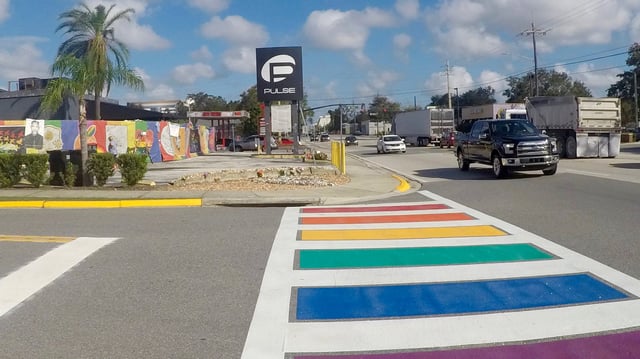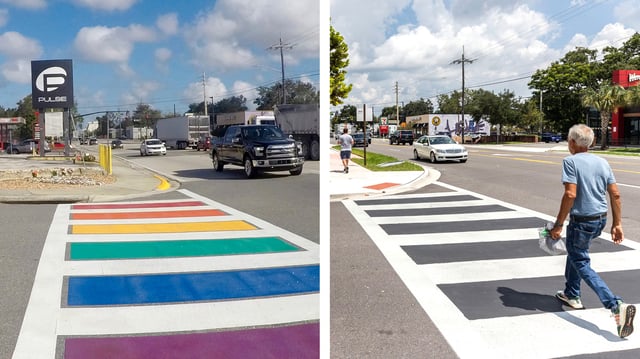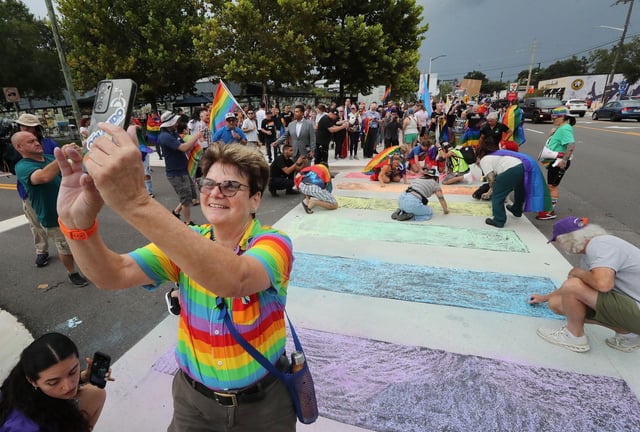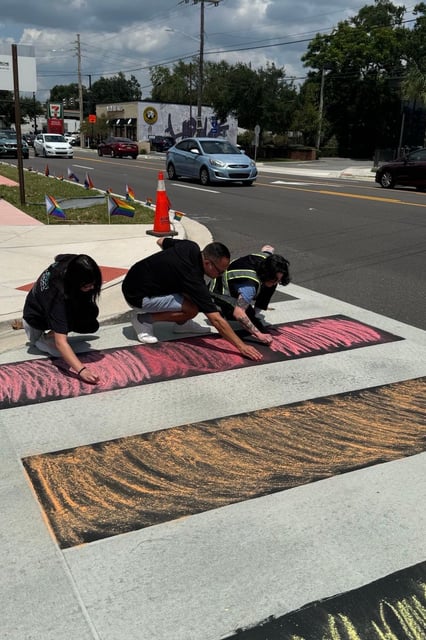Overview
- Florida’s transportation department acknowledged repainting the Pulse memorial crosswalk overnight, calling it a correction under an updated state manual and U.S. guidance on uniform, distraction-free markings.
- Orlando was told at least 18 additional decorative crosswalks must be removed by Sept. 4, with warnings the state could withhold transportation funds, remove them directly, and bill the city.
- Protesters gathered at the Pulse site, briefly restoring rainbow colors with chalk before weather cleared the pavement, as local leaders and survivors condemned the removal.
- Gov. Ron DeSantis said state roads will not be used for political messages, while FDOT noted plans for a state-funded permanent memorial on adjacent property; city officials argue the crosswalks enhance pedestrian visibility and safety.
- Similar orders went to other Florida cities, including a Sept. 3 deadline in Key West and actions targeting Miami Beach and Fort Lauderdale, as Delray Beach seeks an administrative hearing on Sept. 2 to contest the state’s directive.



